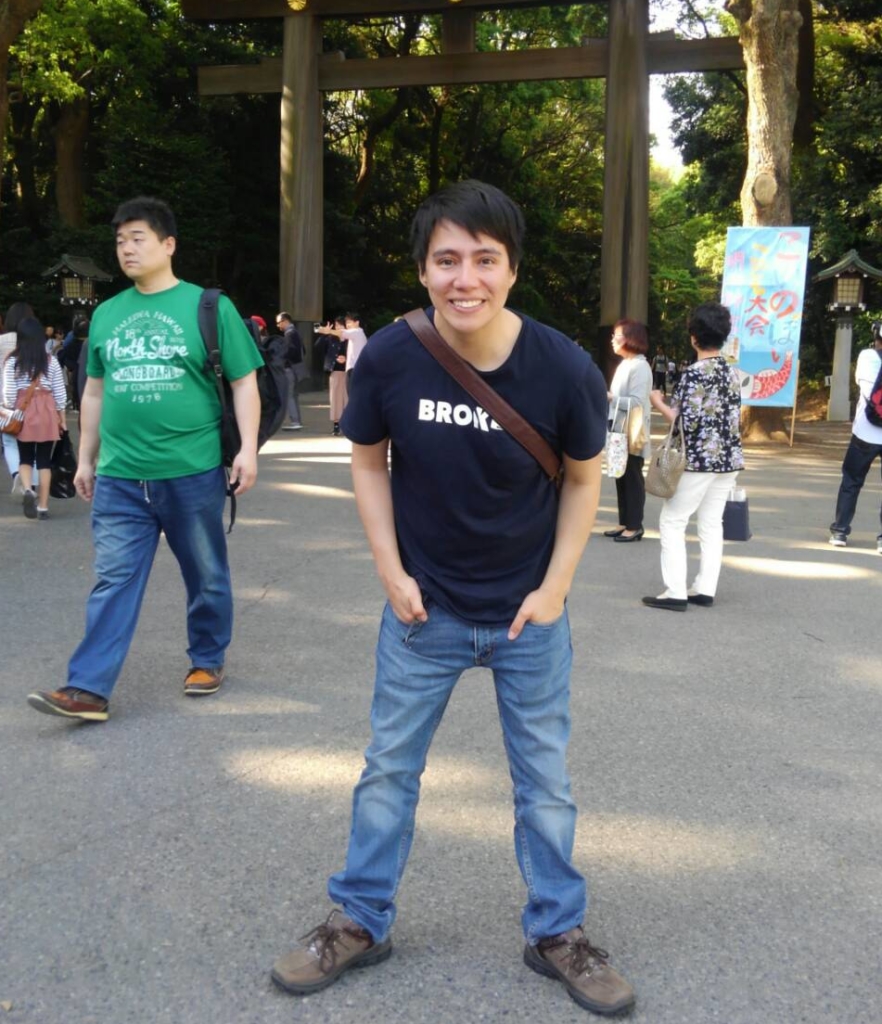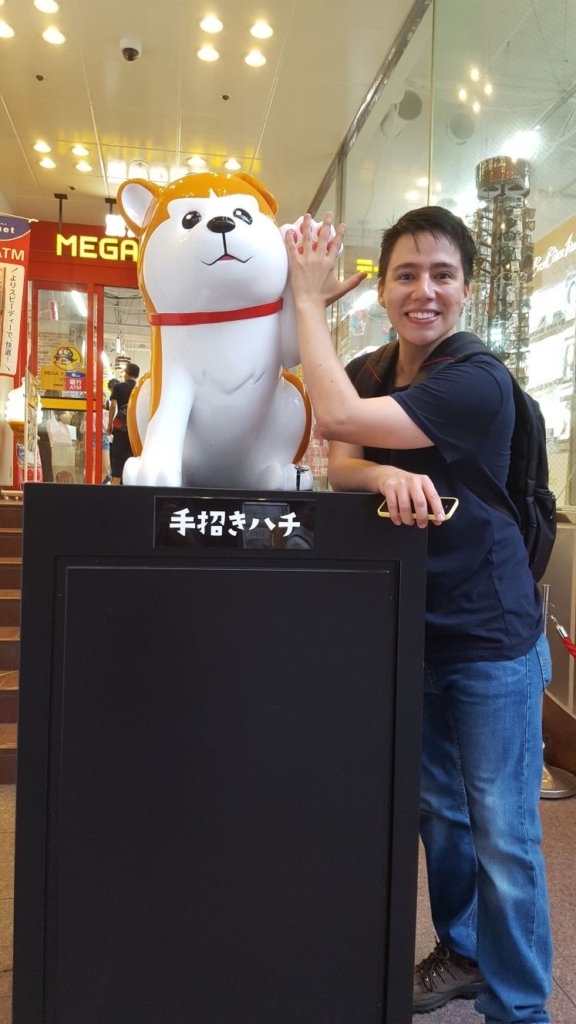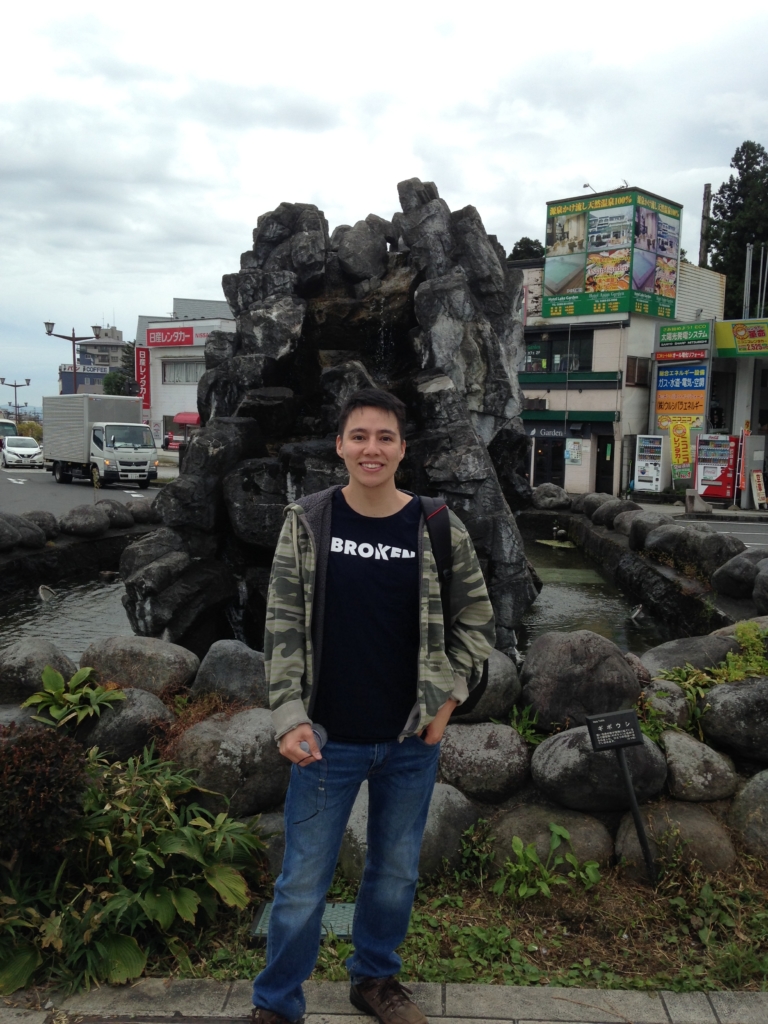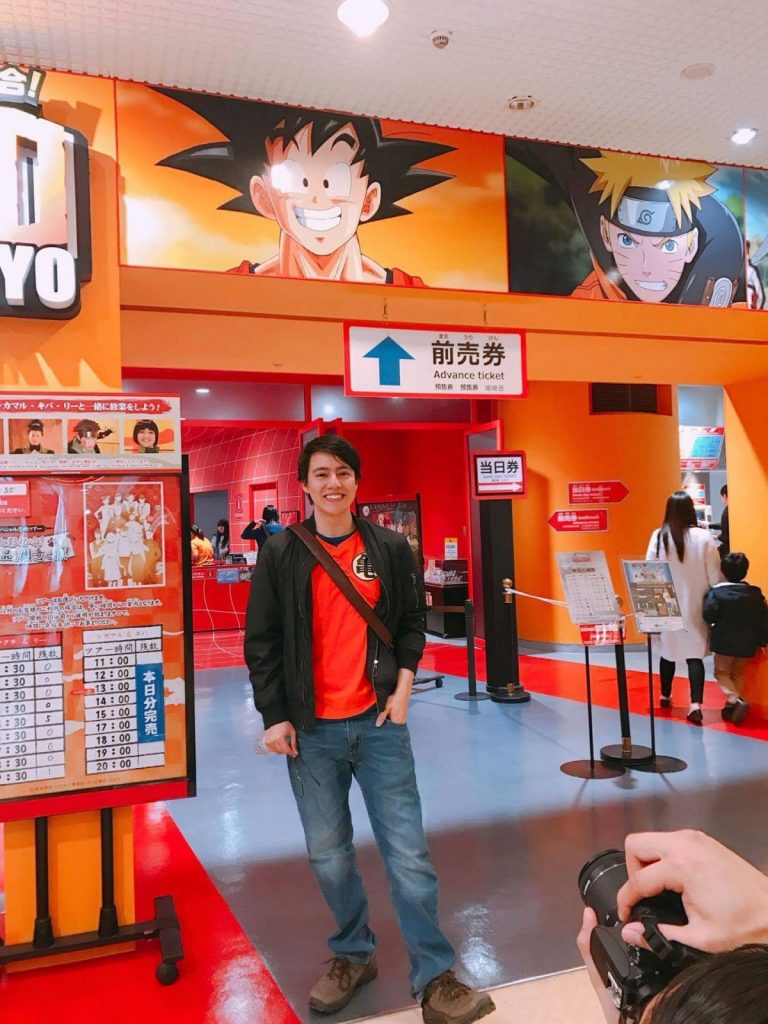A native of Mexico, Erick García Plasencia has an unusual background for an ESL teacher abroad. A combination of an inspiring father and video games lead him to not only English fluency, but fluency in six languages! Read about his journey to Japan and home again—find the courage to start your own career as an ESL teacher abroad (whether or not you’re from a native English speaking country!).

Before we dive in, we want to learn a little more about you. What makes Erick, Erick!?
That’s a good question! I think that what makes me ME is that I always try to see the bright side of everything and a lesson that can be learned in every good or bad situation of our lives, which I try to convey to others through a big smile. I would say I try to be as positive as possible with occasional realism in my everyday life (negativity won’t lead you anywhere).
I also try to understand others (even if I think they’re wrong) by putting myself in their shoes, so that I can provide the best advice possible (sometimes people just need someone to really listen to them). So if you ever need someone to talk with, you can count on me!
About my habits, which are also part of me, I don’t like drinking alcohol nor smoking, but I’m okay being around with people who do so. I also like being healthy, which is why I like going for a run two or three times a week, swimming, hiking, etc. I also like playing Chess (in fact, I was the captain of the Chess club in my high school) and to try new things out.

Did you always dream of traveling and teaching abroad since you were a little kid in Mexico? How did your family support you?
No, I didn’t. I actually started thinking about it in college thanks to my friend Carlos (he’s a polyglot too, and he was my Japanese and German teacher) with whom I’ve worked for about 8 years at his languages school. During our classes, he would tell me about his travels and experiences, which motivated me to start doing the same. He was actually my role model to become a languages teacher and a traveler.
Both have supported me greatly with my decisions and have never tried to discourage me. On the contrary, they always ask me about my next plan! Now they’re curious about what I’ll do in China, but I won’t say a word until I meet them in a couple of weeks.
You’ve been teaching languages for 10 years. What lead you to a love of languages so long ago? What languages do you teach?
It’s a long story, I’ll try to make it as short as possible. I am from a small city named Ríoverde, located in San Luis Potosí in Mexico. Since it is a small place, there’s almost no contact with foreigners, so I grew up in this kind of environment until I started college.
When I was a kid, I used to play videogames, and since these were in English, I had to ask my dad to translate for me. When I was around 11-12 years old, my dad took a French course in town. This really surprised me and made me feel very proud of him because, as I mentioned before, my hometown is a small city with virtually no contact with foreigners. A bilingual or trilingual person is very unusual there!
At age 15, one of my best friends, Carlos, persuaded me to take English classes with him at a school. Once we finished the course, I took another one in a different school because I had really liked learning a new language. After finishing that second course, I decided to major in languages in college, so my dad and I started looking for universities where I could do that. This is how I ended up in Querétaro City (about four hours from my hometown by car) where I met Carlos (it’s funny he shares the name with the friend who convinced me to start studying English), my Japanese-German teacher and current boss, who motivated me to become a polyglot (he can speak eight languages) and to travel.
I currently speak six languages: Spanish, English, French, German, Japanese and some Chinese.

Tell us about your experience teaching English abroad in Japan. What type of school did you work at, what age group of kids?
I first applied for a teaching job in public schools in Japan, but since I didn’t meet the requirements (I had to hold a passport of an English-speaking country), I was first offered an office position as an ALT (Assistant Language Teacher) recruiter in Mito City, Ibaraki Prefecture. Nonetheless, I did have the opportunity to teach in some elementary schools a couple of times because I substituted some teachers who couldn’t make it.
Unfortunately, I was in those schools only once and didn’t have the chance to create a bond with the teachers, the staff or the kids, which I believe is of utmost importance when teaching. From that experience, I learned that kids are kids everywhere love to play, to learn and try new things out, to be noisy… they transmit joy all the time.
After six months working as a recruiter, I quit that job and moved to Tokyo, where I worked for three conversational schools (my students were all adults).
You’re now preparing to teach English abroad AGAIN! What drew you to China and what are you most looking forward to for your internship?
I believe that a languages teacher should have lived in or traveled to different countries (especially those where the language he/she teaches is spoken) in order to be able to teach his/her students not only the language, but also the culture, the way of living, the habits, the flavor of the local food, the real situation of the country, among others. Teaching a language is also about internationalization, learning from other cultures, and bringing new things into your own one. This is what I believed when I went to Japan in 2016, and it’s the same reason why I want to go to China, not only to
I’m really looking forward to experiencing China’s culture, people, ideology, the way of living, local food and to improve my Chinese! Everything I learn from this experience is what I want to share with my future students.
Since you’ve taught so many languages, do you have any cool insights/tips/tricks that makes teaching English a little easier than other languages?
I always try to motivate my students inside and outside the classroom, to show them what they can accomplish by learning a new language, and to show them that learning a new language can sometimes be difficult but fun and not impossible (if I can do it, why can’t you?)!

What is your favorite thing about teaching languages?
It is the possibility of being able to break the barriers of communication! I don’t mean just among cultures, but also among your students. Sometimes it is a good way for them to have someone to talk with, to express their feelings and to learn from others.
I also enjoy seeing my students learn something useful that will help them in their future plans. Also, I really like learning new things while teaching!
What is one piece of advice you’d like to share with aspiring polyglots? And one piece for future international ESL teachers?
For aspiring polyglots: practice as much as possible with music, books, conversations, etc., but don’t stress too much about it. It’s a slow process that requires time and dedication.
For future ESL teachers: heed your students’ needs, listen to what they say and to what they don’t, try to be a bit more than a teacher without crossing boundaries, learn from your mistakes and always try to improve.
For both: never forget to enjoy it and to have fun with it!

If you enjoyed Erick’s inspirational story, check out Sheldon’s TEFL journey in Japan.
The post A New Life in Asia – Interview with Erick García Plasencia appeared first on Premier TEFL.




